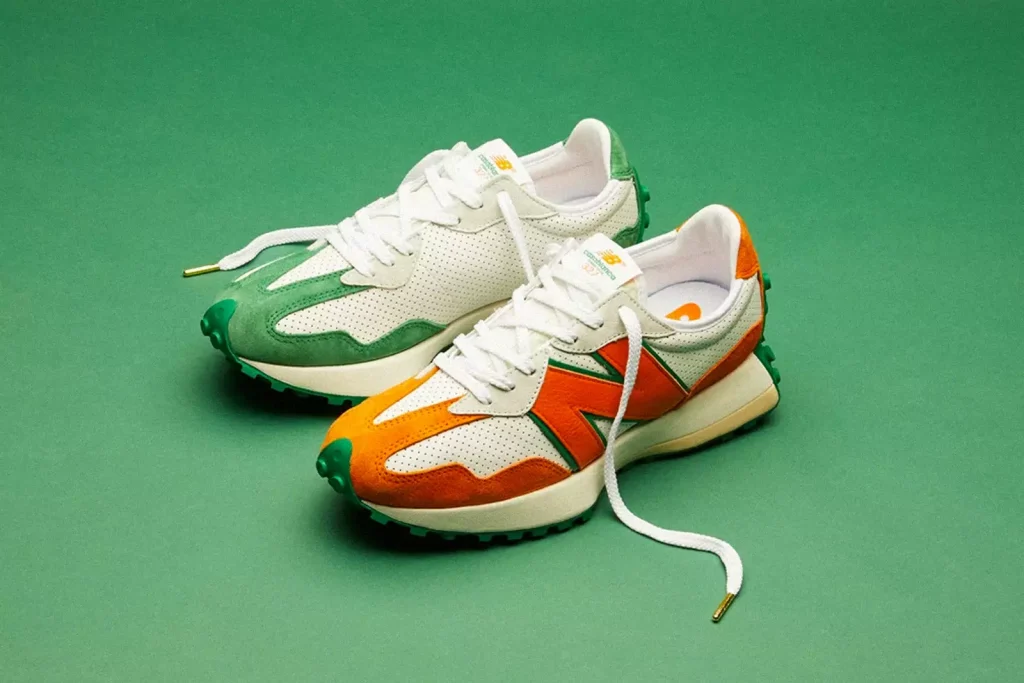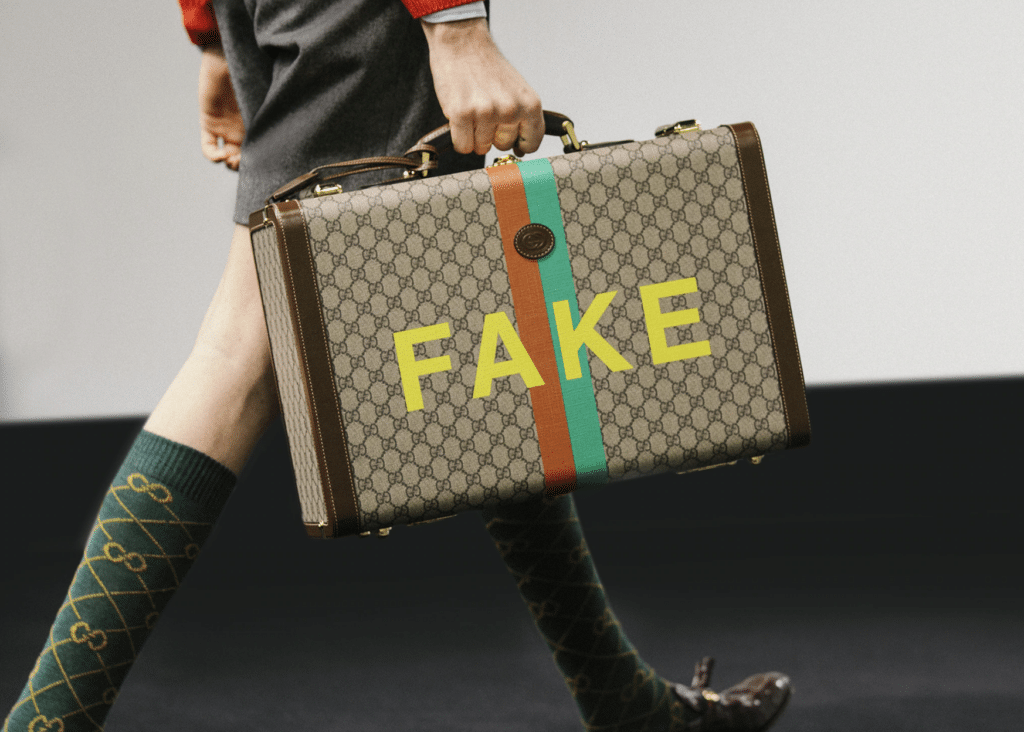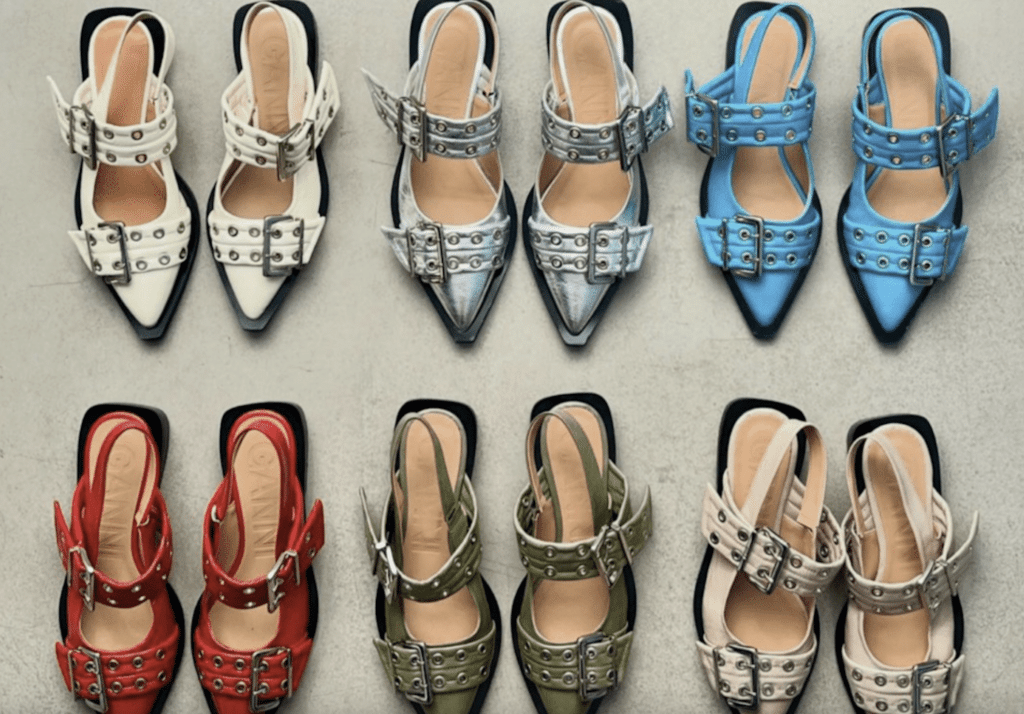Steve Madden has landed on the receiving end of a new lawsuit, with New Balance claiming that its fellow footwear brand has “deliberately copied [its] patent-protected 327 model sneaker and traded off of [its] design, goodwill, and reputation” in an attempt to piggyback on the “commercial and critical success of the 327 design.” According to the complaint that it filed with U.S. District Court for the District of Massachusetts on Tuesday, New Balance alleges that “in late 2020 or early 2021, Madden launched its ‘Chasen’ model sneaker, a deliberate knock-off intended to free-ride off of the popularity of New Balance’s 327.”
Seeing the “instant success” of the 327 sneaker, including the “several million pairs” that it has sold since the sneaker first hit the market back in 2020, New Balance asserts that Steve Madden launched its Chasen model “specifically to capitalize on and free-ride off of the success that New Balance had achieved.” New Balance claims in the newly-filed lawsuit that the original “Chasen” model that Steve Madden began selling in 2021 “not only slavishly copied the design of the 327 model shoe, including the distinctive outer sole design, but it also utilized two diagonal downward stripes that copied the placement and mimicked the appearance of the two sides of New Balance’s famous ‘N’ mark.”
New Balance claims that New Balance has also offered up a variation of the Chasen sneaker that replaces the two stripes on the side with “SM NY90,” but that shoes is still not above-board, as it infringes New Balance’s design patents (D932,755 and D939,813) for the sole of the 327 sneaker.
Setting the stage for its argument that Madden has a pattern of “free-riding off of other designers’ shoe designs,” New Balance asserts that “it appears to be a common business strategy for Madden to identify popular innovative designs and copy them to capitalize on the creativity of other shoe manufacturers.” In terms of litigation, Boston-based New Balance asserts that Madden “has been involved in more than a dozen lawsuits” since 2006, in which it was accused of “knocking off popular designs created by other shoe designers.” Converse, Ugg-owner Deckers Outdoor Corp, and Rothy’s were among some of the plaintiffs in these cases, per New Balance.

In terms of its individual infringement claims, New Balance contends that Steve Madden’s original Chasen and its second, stripe-less iteration infringe its design patents for sole and outsole of the 327 sneaker, arguing that “there is no question that an ordinary observer of either model of the Chasen shoe in comparison to the New Balance 327 shoe design, giving such attention that a shoe purchaser usually gives, would find the two designs to be substantially the same.”
Reflecting on the newly-filed design patent claims, “Due to all the dotted lines [in New Balance’s patent drawings], these design patent claims are pretty broad, and the visual similarity looks pretty high,” Suffolk University Law School professor Sarah Burstein stated in a tweet on Tuesday. As such, she stated that New Balance looks like it has “a strong design patent infringement claim.”
On the trademark front, New Balance asserts claims of infringement and dilution of its “N” marks, which consist of a stylized letter “N” for use on footwear and the specific placement of the letter “N” on the side of shoe. According to New Balance, its “ownership and exclusive use in commerce of [such] marks” – which it has made use of since the 1970s – “predates the use by Madden of the downward sloping stripes on the original Chasen copy of the 327 design of footwear.” New Balance also asserts that while “the designs may vary slightly, an N has appeared on the side of nearly all New Balance footwear sold for more than forty years,” resulting in the sale of “more than one billion products sold in the United States” that bear its trademark.
As for the potential for consumer confusion over the source of Madden’s Chasen sneakers that bear the two diagonal lines on the side, New Balance claims that “Madden’s use of the two diagonal stripe design in connection with the nearly identical shoe design would cause confusion for consumers, or cause consumers to assume that the shoe is associated with or otherwise sponsored by or affiliated with New Balance.” The likelihood of confusion is heightened, per New Balance, by the fact that it and Madden sell their wares through overlapping sales channels, “as they both sell their goods through the same retail stores (e.g., Nordstrom and Macy’s) and through the Internet.” Beyond that, they advertise through overlapping marketing channels, using “the same social media platforms,” among other mediums, “to advertise the relevant goods,” New Balance asserts.
And still yet, “like New Balance, Madden is also well-known for its collaborations with others,” New Balance states, arguing that “Madden’s participation in collaborations significantly increases the likelihood of consumer confusion concerning an affiliation, connection, or association between New Balance and Madden because consumers are likely to believe that New Balance authorized or licensed Madden to use the novel 327 shoe design and its famous N marks on its shoes.”
New Balance goes on to claim that Steve Madden has engaged in dilution by way of its copycat footwear, pointing to the decision in the New Balance Athletics, Inc. v. USA New Bunren Int’l Co. case, in which the Federal District Court for the District of Delaware “found the N marks [to be] famous.”
With the foregoing in mind, New Balance sets out claims of design patent infringement, trademark infringement and dilution, and false designation of origin, and is seeking injunctive relief to bar Madden from “using any design, or any derivative(s) thereof” that infringe the patents at issue or that bear marks that are confusingly similar to its “N” marks, as well as monetary damages.
New Balance’s lawsuit comes just days after Steve Madden was named in a trade dress infringement lawsuit by Teva-owner Deckers for allegedly infringing its “Original Universal 90’s Multi Colorway Trade Dress.”
A rep for Steve Madden was not immediately available for comment.
The case is New Balance Athletics, Inc. v. Steven Madden, Ltd., 1:22-cv-10879 (D. Mass.)











